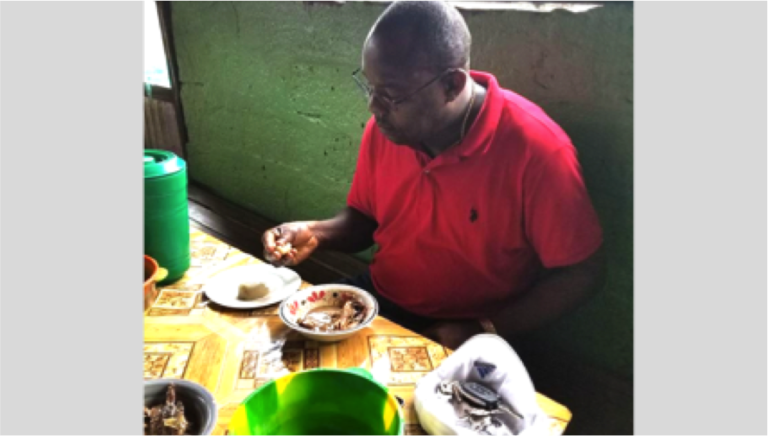By Gibson W. Jerue
For now Liberians do not have to worry about the reputation of President George Weah or his administration. The international community looks at him as having impeccable character, insomuch as his past record as one of the greatest soccer legends ever to walk the face of the earth. Besides, Weah is known to not be involved with any rebellion or resistance armed groups during the Liberian civil imbroglio. All that is a plus.
But as we often think of power, it corrupts and absolute power corrupts absolutely. As President with all the powers attending the Liberian presidency, there is huge temptation that either the president would make faulty decisions or any of his cabinet members may do something nefarious that would demand the attention of the rest of the world. With that in mind, that is why the government of Liberia – even before Weah – created the position of Deputy Information Minister for Public Affairs. The function of that position is sine qua non to the advancement of government policies, articulation of factual, relevant and realistic socio-political, economic and infrastructural policies and programs. That is the position Engene Fahgon occupies currently. That means Fahgon holds the key to government public relations…but can he deliver?
Way #2. Sharpen your writing skills: There are three mediums that compete on the information and communication lanes in a third world country like ours – radio, television and newspaper. That does not mean social media, like Facebook, does not play a major role. No matter how you look at it, Facebook is still a luxury or too technical for a huge portion of the Liberian poeple. And even most unfortunate is that television has not taken root since the cessation of the war in our country. That leaves us with radio and newspaper. If you want quick impact public relations in Liberia, radio is the way to go. But that platform is open to all voices, reasonable or naïve. With radio you may be able to boost government image locally, while others use the same medium to lambast the government for whatever they believe is wrong, whether rightly or wrongly.
But when you want to deal with the international community, when you want to get the ears and eyes of the powerful voices of the world, then newspapers will be the playing field. If the World Bank executives want to monitor the situation in Liberia, they do not go scurrying on the Facebook looking for half-baked, irrational, one-sided and badly structured writings. They search the Internet for conventional newspapers; they get copies of local newspapers; they read editorials, and then they make up their minds. Take a moment to think about Samuel Doe. His trouble locally was manageable, but when newspapers documented excesses, brutalities and missteps – real or manufactured – the world began to squeeze on him. It did not matter how much Samuel Doe impressed the citizens of Nimba with the slaughter of a cow, or providing scholarships for tens, perhaps hundreds of them, or taking harsh austerity measures to impress the United States and other powers in the international community, he was going down – and down he went. Think about Charles Taylor who seemed extremely popular –or rather notoriously famous – in Liberia, but newspaper publications were his biggest nemesis. The challenges mounted and became impossible hurdles to overcome.
Eugene Fahgon, the position you occupy is not selling Ghana-made fufu in an African store. It is not! To be deputy minister for public affairs, you carry the burden of fine-tuning government PR, you galvanize and liaise with media managers, editors, reporters and plant government public relations into their hearts and minds. When you get to know the journalists, and not insult them, you will save the Weah Administration the headache of retroactively clarifying news reports. You must be proactive. You should write articles, commentaries, respond to social media postings with respect and facts that will bereft them of any negative political cleavages. I am not talking about screaming on Facebook live. I am not talking about being disrespectful of people who elected Weah. I am not talking about going to “cooked bowl shop” and calling it “pro-poor” agenda. I am actually talking about calculated, pragmatic, systematic and coordinated public relations that take President Weah into the living room, offices, and shelves of the people. When a Wehtee reads your writings in West Point, or when a Theresa May picks up your article in London or when a Trump reads you online, they must be embraced of good image of the government you represent. If you must win the support of the international community, begin to write smart and logically profound articles, as you would speak, to promote government’s side of the story.
But listen and listen very good – you should stop going around and telling people that your sacrificed your life to make George Manneh Weah. As a matter of fact, Weah was already popular; he made himself, and you simply rode on his reputation to mount a Facebook shouting match with your reckless use of “cartel” and “country-concau” divisive grandiloquence. If you blunder, the government blunders!

